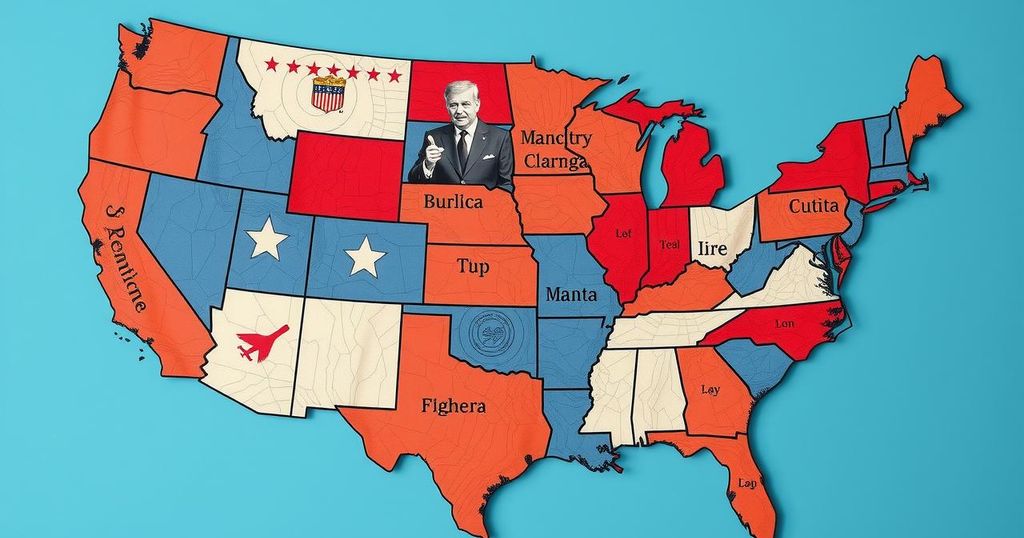Virginia Special Elections as a Gauge of Partisan Engagement Post-Trump

The upcoming special elections in Virginia’s Loudoun County will serve as early indicators of partisan enthusiasm in the aftermath of Donald J. Trump’s victory. With key legislative seats at stake, both parties prepare for a critical political test while addressing changes in voter engagement and concerns over mobilization in heavily Democratic districts.
As Democrats strive to reinvigorate their fatigued base, special elections in Virginia’s Loudoun County represent a critical initial gauge of partisan enthusiasm in the post-Trump era. The elections for overlapping legislative seats will occur early next year and will determine who maintains a majority in the state legislature, following President-elect Donald J. Trump’s recent victory. These races emerge after Democratic enthusiasm surged following Trump’s previous win in 2016, but now concerns persist regarding decreased mobilization compared to past elections.
The recent vacancies resulted from the Democratic victories of Suhas Subramanyam and Kannan Srinivasan, both of whom resigned to fulfill other elected positions. New candidate JJ Singh is also vying for election. All three districts, despite being strongly Democratic—with Terry McAuliffe receiving over 60% of the vote in previous contests—face challenges as enthusiasm wanes. Republicans have nominated candidates who prioritize school-related issues, aiming to disrupt Democratic dominance in the legislature.
Low voter turnout is expected during these special elections, particularly as they fall within busy months marked by holidays. Democrats currently possess a slight advantage in the Virginia Senate and House of Delegates, and a loss could jeopardize their ability to advance key issues, including constitutional amendments concerning abortion and voting rights.
Campaign chair Dan Helmer highlighted an increased budget for these races, indicating a recognition of the challenging political climate in Loudoun. Meanwhile, Singh, a prominent candidate, is focusing on lowering public university tuition and tolls while supporting traditional Democratic policies. He expressed concerns about voter apathy and confusion regarding ongoing political changes.
Republicans are keenly interested in Loudoun’s shifting demographics and previous election trends, seeking to capitalize on a move towards the right. Political strategist John Whitbeck noted that the special elections largely appeal to party loyalists, which may indicate a rise in Republican enthusiasm depending on the outcomes. The stakes remain high for both parties as Virginia navigates its evolving political landscape.
The article examines upcoming special elections in Virginia’s Loudoun County as indicators of partisan enthusiasm in light of Donald J. Trump’s electoral success. The significance of these contests is underscored by the political tactics implemented since Trump’s tenure, with Democrats experiencing a noted decrease in mobilization and funding compared to the previous cycles. The article reflects on historical trends and current strategies while framing the candidates’ platforms against the backdrop of ongoing political sentiments.
In conclusion, the impending special elections in Loudoun County signify a pivotal moment for both the Democratic and Republican parties as they navigate post-Trump political dynamics. The Democrats are tasked with rekindling voter enthusiasm and mobilizing their base effectively, given recent declines in engagement. Meanwhile, Republicans are poised to leverage any emerging trends towards their advantage. The outcomes of these elections will likely have ramifications for future legislative control and the political framework in Virginia.
Original Source: www.nytimes.com






